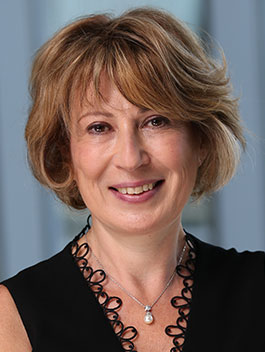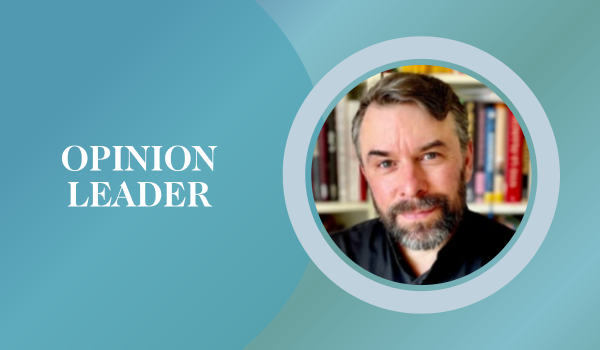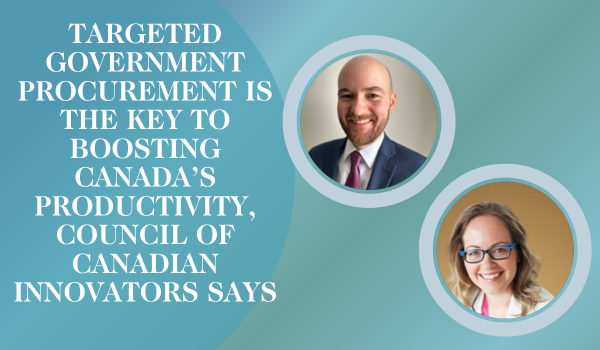Increasing the place of science within government: Q&A with Mona Nemer, Canada's Chief Science Advisor
 Dr. Mona Nemer, PhD (photo at right), was reappointed by Prime Minister Justin Trudeau in July as Canada’s Chief Science Advisor for a term of three years, effective September 25, 2024. Nemer, a leading researcher in the field of molecular cardiology, has served as Canada’s Chief Science Advisor since 2017. She was reappointed to the role in 2020 and 2022. In this role, she provides scientific advice to the federal government so that science is reflected in public policy and policymakers have the evidence they need to make good decisions. Her advice also helps ensure that government science is fully available to the public, federal scientists are able to speak freely about their work, scientific analyses are considered when the government makes decisions, and to help the government better support quality scientific research within the federal system.
Dr. Mona Nemer, PhD (photo at right), was reappointed by Prime Minister Justin Trudeau in July as Canada’s Chief Science Advisor for a term of three years, effective September 25, 2024. Nemer, a leading researcher in the field of molecular cardiology, has served as Canada’s Chief Science Advisor since 2017. She was reappointed to the role in 2020 and 2022. In this role, she provides scientific advice to the federal government so that science is reflected in public policy and policymakers have the evidence they need to make good decisions. Her advice also helps ensure that government science is fully available to the public, federal scientists are able to speak freely about their work, scientific analyses are considered when the government makes decisions, and to help the government better support quality scientific research within the federal system.
Under Nemer’s leadership, the network of ministerial scientific advisors across government departments has grown, including the establishment of a pan-Canadian youth council to assist Canada in its science policy considerations. Her Office of the Chief Science Advisor also helped create the interdepartmental Indigenous STEM Cluster (I-STEM) to inform and advance Indigenous aspirations and innovation in natural science stewardship. Nemer also has promoted the free, open and responsible use of science in government through the creation of a model policy on scientific integrity and a roadmap for open science to guide efforts in making federal research available to Canadians.
Nemer talked with Mark Lowey, Research Money’s managing editor, about her top priorities for her new term, forthcoming reports from the Office of the Chief Science Advisor, scientific integrity in the federal government, and her greatest satisfactions and challenges during her time as Canada’s Chief Science Advisor.
R$: In July, the Prime Minister reappointed you as Canada’s Chief Science Advisor for a three-year term, to September 2027. Can you tell us what your top three priorities are for your new term?
MN: The mandate hasn’t changed, so the fundamentals are the same: enhancing science advice in Canada. In terms of some specific priorities, because it’s difficult to foresee beyond maybe the next year, it’s clear as per the budget announcement that I’ll be supporting the minister of ISED [Innovation, Science and Economic Development Canada] in terms of setting up and getting the best of counsel for science and innovation.
The second priority linked to this is the new national science and innovation strategy, [proposed in Budget 2024] which is something that I think the community, both academic and the private sector – everyone – has really been asking for. So I’m going to be very happy to contribute to the strategy.
In terms of a third priority it’s really tough to choose. I think we’ve made great headway in terms of having science, technology and innovation be more present in our international relations. With all of the things happening around the world, whether it’s geopolitics, technical challenges, and the reality that economic prosperity is going to be so dependent on science and technology, I think this is going to occupy a good place for my Office to ensure Canada’s presence and leadership internationally in science, technology and innovation.
R$: Budget 2024 committed to establishing a new capstone research funding organization and a new advisory council on science and innovation. Will your Office be involved in the design and delivery of these two new components in Canada’s science, research and innovation ecosystem and, if so, how? Will your Office be represented on the new advisory council?
MN: I’m involved in providing advice to the Minister of ISED [ François-Philippe Champagne]. In his open letter to the community, he has asked the [research] granting councils to engage with the community or to provide [navigation and planning] in consultation with the Chief Science Advisor. So it’s good to see that they’re using the Office of the Chief Science Advisor as it should be. Beyond that, I think we’ll have to wait and see who will be involved and what form the capstone agency will take.
As for the new advisory council, it’s my hope that the Office will be represented on the council. And this is based on my analogy to other countries that have these kinds of high-level advisory councils, where the chief science advisor or the government science advisor is eminently involved in supporting the government and the working of the advisory council. So it is my hope that this will be the case for Canada, but we’ll have to wait and see.
R$: Your Office has produced several reports focused on providing science advice in various areas. Do you have any new reports in the pipeline that you’re able to tell us about?
MN: My Office will be doing more reports, other than our annual report. We’ve already talked publicly about the release of the Sky Canada report that is quite anticipated. The Sky Canada report is about how the public reports in Canada when they see unidentified aerial phenomena. In the past we called this UFOs [unidentified flying objects], but now there are so many things in the sky – satellites, space debris and others. It’s a topic that has risen to high in the priority of many of the Western countries, including the U.S. where there has been a big report from NASA.
We’re not trying to answer the question as to whether these phenomena exist or not, but how should they be reported, where should we direct the public to report them, and what should be done with the reports. Our interest in it is a scientific one and also for science literacy, in a way combatting disinformation and misinformation, because there are a lot of conspiracy theories there, [accusations that] governments are hiding things, and I think this is really a case where we can be open and actually encourage citizen science in a way. We’ve committed to getting this report out before the end of this year.
As for other reports, we’ve done some roundtables with experts around the Global Biodiversity Framework. So we will be releasing reports in support of that. We’re going to have an update on our post-COVID condition report. Things have happened in the past year, so that report is important. One of the reports that is going to be very important is the report of our advisory committee on Canadian scientific data governance. This is part of this open science framework, which looks at the framework both for openness and security and specifically looks at the governance, things like how long do you need to keep the data, who needs to access it. So not the hardware part, but really the framework because that’s becoming increasingly important. When we talk about AI, data is integral, so I see this as a very important report.
R$: You were first appointed as Canada’s Chief Science Advisor in 2017, and were reappointed in 2020 and in 2022. What has been your greatest satisfaction – and the greatest challenge – during your time as Canada’s Chief Science Advisor?
MN: One of my greatest satisfactions has been to see that the place of science within government has increased. There is more awareness of science at the highest level, and I’m not just talking at the political level but also the public servants, the deputy ministers, the ADM [associate deputy minister] levels. There’s a recognition that actually science is important in what they do.
Linked to that, and I think it has encouraged it as well, my satisfaction has been to see how the scientific community has stepped up to the plate during COVID to actually support the government and this linkage between these two worlds [government and the scientific community] that we thought had a different relationship, one of clients-stakeholder/funder-provider – how they worked so collaboratively during the pandemic was exemplary. It has continued. We have to make sure it continues because there are all these challenges, whether we talk about the climate crisis, the emergency crisis that we’re seeing, the AI revolution. I think it’s going to be so constructive if we continue to foster this relationship. I really take a lot of satisfaction in seeing this happen.
As for challenges, this [collaborative relationship] hasn’t been easy to achieve, and it cannot be taken for granted. So I think that the place of science in government with the public has to have ongoing attention, we cannot neglect it. I think the dialogue has to continue, I think it’s in everyone’s best interest that this continues, that we increase science literacy and science culture in the country. That’s a challenge, but it’s a good one. [The relationship] has to continue and it certainly can’t be done through one office or a small number of individuals. It really is a collective endeavour and a collective challenge for all of us – it keeping the momentum going.
Canada is a relatively young country. Our research and science excellence, our focus on science, is relatively recent compared to other countries like in Europe, whether it’s the U.K. or Germany or France, and of course we have our U.S. neighbour. But I think we’ve achieved a lot in the past few decades in Canada and we really need to ride the momentum and maintain it.
R$: During your time as Canada’s Chief Science Advisor, what are a couple of the biggest changes that you’ve seen in Canada’s science, research and innovation landscape/ecosystem?
MN: One notable change I observed is the increased interest from scientists in contributing to public policies, best evidenced during the COVID-19 pandemic by the unprecedented mobilization of academic scientists to provide science advice to governments.
Another significant change is the heightened appreciation of the importance of trust and dialogue between scientists and the public to combat misinformation, and ensure that society fully benefits from scientific and technological advances.
Last but not least, there is renewed interest in the multiple dimensions of science diplomacy.
What has not changed is the importance of research, innovation and increased productivity – through advanced technology adoption, among other things – for economic development and prosperity.
R$: I did a Research Money story in August about a webinar on scientific integrity, presented by Evidence for Democracy and the Union of Concerned Scientists. During the webinar, it was noted that 18 federal departments have yet to implement measures to support education, training and/or professional development devoted to the roles of science and research in developing evidence to support evidence-informed decision-making. Also, 21 departments have yet to implement a monitoring plan that provides information on the extent to which their scientific integrity policy has achieved its objectives.
I know that scientific integrity is important to you and your Office, which issued a report on the topic. Can you tell us what your Office is doing to help ensure these federal departments implement these measures to support Canada’s Model Policy on Scientific Integrity, including establishing a monitoring plan?
MN: Some federal departments have now caught up [on implementing monitoring plans]. We release a report every year [on implementation], so there should be one coming out soon. I’m satisfied how this is going. The scientific integrity policy and everything in it and around it featured prominently in the Clerk of the Privy Council’s dialogue on the value and ethics code [for the federal public sector], I have to say to my surprise and my satisfaction.
It means a lot to the scientists, but it also means now increasingly more to those who use science. Science integrity should apply not only to those who actually do the research. It should also apply to those who use it and to those who supervise it. There needs to be a good understanding.
I think the monitoring has become increasingly important for everyone in the departments. We’re supporting them in providing examples of the kinds of metrics that can be used. Of course, in a way we’re forcing them to do it because they do have to report on it and we have to have a meeting every year with the union and Treasury Board.
More importantly, rather than just using a stick approach, it’s helping the federal departments achieve this. The training part and the awareness part is one that we’re increasingly involved in, and we’ve worked with the Canada School of Public Service to put out online courses and modules to support the scientific integrity policy, for people to understand what the difference is between science advice and science data, for example. We’ve heard from both the policy [makers] and the researchers that they find these very helpful, so we’ll be doing more of them.
We have an ongoing working group, and where we see that there’s more need for support and help, we do it at the working levels or higher up. The interesting thing to note is that as more departments are needing to have more science, they’re coming under the umbrella of the scientific integrity policy. So it’s not a static thing, it’s a dynamic thing happening. As more departments come in where they have less of a history of research and science use, they require more support and we’re providing the support.
We recently had the annual retreat of the departmental science advisors. It was really so satisfying to hear the progress, for example, in a department like Transport Canada that initially didn’t view themselves as a science-based department. And of course, engineering is applied science. Science is not only natural or biological sciences. Their [Transport Canada’s] needs are increasing algorithmically. There are going to be more and more departments that are going to be faced with the details and the minutiae of some science, for regulatory and policy purposes. We’re going to be needed more, not less.
R$: The polls are telling us there’s a good chance Canada will have a new federal government after our next election. Do you think a new government will see the value in having an Office of the Chief Science Advisor? If a new government does see value in that, what expectation do you have that you’ll continue to be Canada’s Chief Science Advisor – or do you think a new government would want another person in that role?
MN: The Office of the Chief Science Advisor is an independent office, it’s not a political office. The appointment of the Chief Science Advisor is a merit-based appointment, just like that of the president of the Natural Sciences and Engineering Research Council of Canada or SSHRC (Social Sciences and Humanities Research Council of Canada) or CIHR (Canadian Institutes of Health Research) – which by the way don’t change with a change in government.
I know we [the Office of the Chief Science Advisor] don’t have a long history, but this [Office] is an important thing. I do have the term appointment and I’m here to serve the government of the day and Canadians. How much any government wants to use advice and wants to use the Office of the Chief Science Advisor is entirely up to them. But given how the world is going in terms of technological developments – we talk about the pandemic as if it’s something in the past but COVID is still with us. We have two other potential pandemics on our hands with mpox and highly pathogenic avian flu.
I think that the Office of the Chief Science Advisor has demonstrated its utility under really important general conditions for the country. We’re a nimble Office, we’re small, we don’t cost much. We don’t hire and pay consultants. Actually, they work for free for us. We’re a model to be emulated across government. I certainly hope that any government would see the value of having an Office like this.
Science doesn’t tell you what to do. Governments are elected, it’s a democratic process. They promise to do things, they have different ideologies and so on. That doesn’t mean the policies they want to implement and the actions they want to take shouldn’t be informed by evidence. I think that’s something that’s really important. The policy orientations may change, the emphasis on certain things might change. It doesn’t mean that evidence will not inform what they’re doing. I sure hope that everyone in the country, irrespective of how they vote, is expecting their governments to be using evidence as they put forward their agenda.
R$
Events For Leaders in
Science, Tech, Innovation, and Policy
Discuss and learn from those in the know at our virtual and in-person events.
See Upcoming Events
You have 0 free articles remaining.
Don't miss out - start your free trial today.
Start your FREE trial Already a member? Log in
By using this website, you agree to our use of cookies. We use cookies to provide you with a great experience and to help our website run effectively in accordance with our Privacy Policy and Terms of Service.





